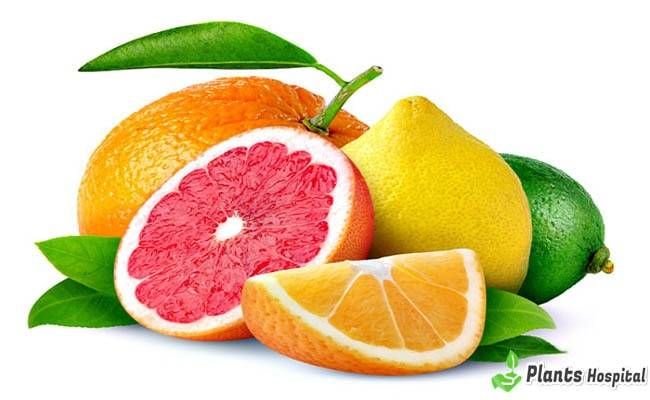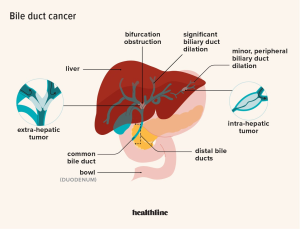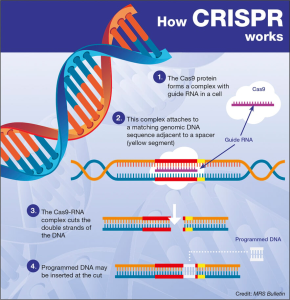
Recent research has illuminated a surprising link between citrus and depression, suggesting that adding an orange to your daily routine could reduce your risk of depression by up to 20%. This fascinating discovery, spearheaded by physician-researcher Raaj Mehta from Harvard Medical School, reveals how citrus consumption might stimulate the growth of beneficial gut bacteria, specifically F. prausnitzii. This unique bacterium plays a crucial role in the gut-brain connection, influencing key neurotransmitters like serotonin and dopamine, which are vital for maintaining a positive mood. As we delve into the benefits of citrus within the broader context of a mental health diet, the implications for depression prevention become increasingly clear. Ultimately, understanding how simple dietary choices affect our emotional well-being could reshape our approach to mental health management, highlighting the potential of citrus as a powerful ally in combating depression.
In exploring the relationship between fruit consumption and mental health, citrus fruits such as oranges and lemons emerge as noteworthy candidates for improving emotional well-being. The dietary impact of these zesty fruits extends beyond physical nourishment, as a notable connection to reduced risk of mood disorders surfaces. Insights into the gut-brain axis reveal that certain gut bacteria, including F. prausnitzii, thrive on citrus intake, subsequently promoting the production of mood-enhancing neurotransmitters. By incorporating citrus into a well-rounded mental health diet, one may uncover a natural strategy for depression prevention, reinforcing the importance of nutrition in psychological resilience. As researchers continue to uncover the intricate links between our diet and emotional health, citrus fruits could easily become a staple for those seeking to uplift their spirits through dietary choices.
The Gut-Brain Connection: How Citrus Influences Mood
Recent research has shed light on the intricate relationship between our gut health and mental well-being, known as the gut-brain connection. Notably, the consumption of citrus fruits has been linked to improved mood and lower depression risk. A study conducted by Harvard researchers found that individuals who consumed citrus regularly had a higher abundance of beneficial gut bacteria, specifically Faecalibacterium prausnitzii (F. prausnitzii). This type of bacteria plays a crucial role in producing neurotransmitters such as serotonin and dopamine, which are essential for mood regulation. Thus, incorporating citrus into one’s diet may not only enhance gut health but also serve as a natural method for promoting mental wellness.
By fostering a healthier gut microbiome through citrus consumption, we can potentially prevent conditions related to depression. The findings suggest that eating citrus can positively impact our mental health, highlighting the importance of a balanced diet rich in nutrients. With depression on the rise, understanding how specific foods enhance our mood opens new paths for prevention strategies, emphasizing a holistic approach to mental health.
Furthermore, the research suggests that it is not just about eating fruits and vegetables in general, but that citrus fruits stand out in their effectiveness against depression. While other fruits may not show the same correlation, citrus consumption appears to specifically support the growth of F. prausnitzii, which is associated with lower depression scores. This connection reinforces the idea that dietary choices play a vital role in mental health, providing insights into how we can strategically use nutrition to enhance overall well-being. As mental health diets gain traction, incorporating elements like citrus could prove to be one of the simplest yet impactful changes individuals can make.
Benefits of Citrus: More Than Just Vitamin C
Citrus fruits are often celebrated for their high vitamin C content, but recent studies reveal that their benefits extend far beyond just immune support. Citrus fruits like oranges and lemons are rich in flavonoids and antioxidants, which contribute to their mood-lifting properties. The effects of citrus consumption on mental health indicate that eating these fruits not only nourishes the body but also shields the mind from the risks associated with depression. The powerful combination of vitamins and antioxidants in citrus is instrumental in reducing inflammation and boosting overall brain health, ultimately leading to improved mood and well-being.
Moreover, the inclusion of citrus in a regular diet provides an enjoyable and refreshing way to promote mental health. The intrinsic flavors of citrus can enhance food enjoyment, making healthy eating more appealing. With the growing evidence supporting the mental health benefits of citrus, individuals are encouraged to explore various ways to include these fruits in their daily meals, whether it’s in smoothies, salad dressings, or simply as a snack. This aligns with a mental health diet that emphasizes nutrient-dense foods to support holistic well-being.
Additionally, the versatility of citrus fruits allows for incorporating them into a variety of dishes, enhancing both flavor and nutritional value. The synergistic effect of vitamin C with other nutrients found in citrus aids in better absorption of essential nutrients, fostering a healthier body. This can create a positive feedback loop, where improved physical health translates into better mental health, illustrating the interconnectedness of body and mind. As we strive for wellness, embracing the cyclical nature of nutrition and mental health is critical, and citrus can be at the forefront of this journey.
F. prausnitzii: The Key Microbe in Citrus Consumption
Faecalibacterium prausnitzii, often abbreviated as F. prausnitzii, has emerged as a significant player in the relationship between diet and mental health. This bacterium is recognized for its anti-inflammatory properties and is predominantly found in the gut microbiomes of healthy individuals. The Harvard study highlights how the consumption of citrus elevates levels of F. prausnitzii, thereby establishing a pathway through which diet can influence mood and depression prevention. The links between this beneficial microbe and neurotransmitter production underscore the importance of maintaining a diverse gut microbiome for mental well-being.
As research continues to unravel the mysteries of the gut microbiome, F. prausnitzii serves as a reminder of the importance of dietary choices in shaping not just our physical health but also our mental resilience. The facilitation of neurotransmitter production by these gut microbes offers a biological explanation for why certain foods can have stimulating effects on mood. Thus, including enough citrus in the diet may enrich the gut with F. prausnitzii, enhancing mental health through a naturally occurring biological mechanism.
Lessons from studies on F. prausnitzii advocate for a holistic approach to health that embraces the connections between diet, gut bacteria, and mental well-being. As researchers delve deeper into the role of the microbiome, we might anticipate future insights leading to dietary recommendations that prioritize foods like citrus. Understanding the functions of beneficial bacteria like F. prausnitzii could also lead to targeted probiotic therapies that complement dietary choices, ultimately establishing a comprehensive strategy for depression prevention and enhancing mental health.
Citrus and Depression: A Natural Aid for Mental Health
With growing concerns over mental health, the exploration of natural remedies like citrus fruits presents an exciting frontier in depression prevention. The link between citrus consumption and lower depression risk has been underscored by recent studies, presenting a natural diet strategy to enhance mental health without the side effects associated with conventional antidepressants. This emerging body of research invites a re-evaluation of dietary habits, especially for those at risk of depression, promoting the idea that what we eat can significantly impact how we feel emotionally.
Researchers have highlighted the importance of food choices in the context of mental health diets, with citrus fruits emerging as a key component. The bioactive compounds found in citrus may also play roles in managing stress and anxiety, further contributing to their potential as a natural antidote to depression. Adopting a more citrus-rich diet could be a simple yet effective step in improving mental well-being, encouraging individuals to not only consider nutritional benefits but also the emotional benefits of their food choices.
Furthermore, the potential of citrus as a mental health booster aligns with traditional dietary practices that emphasize whole foods and natural ingredients. Unlike pharmaceuticals, the adoption of a diet rich in citrus is not only easy but also provides a myriad of other health benefits, from improved digestion to enhanced immunity. This holistic approach could lead to a cultural shift in how we perceive and treat mental health issues, where everyday foods play a pivotal role in prevention strategies. As more evidence surfaces, citrus could very well become a staple in the dialogue surrounding mental health and diet, marking a significant step towards integrating nutritional psychiatry into our everyday lives.
Exploring Dietary Options for Depression Prevention
As mental health awareness continues to grow, the exploration of dietary options for depression prevention has become increasingly important. Research indicates that specific nutrients and food groups can play a vital role in alleviating depressive symptoms and supporting overall mental well-being. In particular, a mental health diet that focuses on whole, nutrient-rich foods, including citrus, can contribute positively to emotional stability. By understanding the protective factors in various foods, individuals can make informed dietary choices that promote mental health and act as a buffer against depression.
In looking for effective dietary options, it is essential to consider foods that influence hormone production and gut health. Citrus fruits are renowned not only for their high vitamin C content but for their contributions to gut microbiota diversity, which is linked to better mental health outcomes. By prioritizing foods that foster a thriving gut environment, such as citrus, we may uncover effective strategies for preventing depression and encouraging long-term mental health.
Moreover, as part of a broader dietary approach, integrating citrus into daily meals can provide an enjoyable way to enhance flavor without compromising health. This user-friendly option allows people to increase their intake of essential nutrients effortlessly. Combining citrus with other nutrient-dense foods, like leafy greens, whole grains, and healthy fats, creates a well-rounded diet that supports both physical and mental health. By embracing dietary diversity and recognizing the powerful impact of food on mood, society can start navigating towards more effective prevention strategies in addressing mental health issues.
The Role of Antioxidants in Mood Enhancement
Antioxidants, prevalent in citrus fruits, play a crucial role in enhancing mood and combating depression. These compounds protect the body from oxidative stress, which has been linked with various mental health disorders. Citrus fruits, packed with antioxidants like flavonoids and vitamin C, may help mitigate inflammation and oxidative damage in the brain, which can influence mood regulation. This unique property of citrus could provide an invaluable role in a mental health diet, aiming to uplift mood naturally and effectively while contributing to overall health.
In addition, a diet rich in antioxidants can help stabilize energy levels and improve cognitive function, creating a positive feedback loop where better mood leads to increased motivation to maintain healthy habits. By incorporating citrus into meals, individuals can not only enjoy delightful flavors but also reap the rewards of improved mental health. Such dietary patterns can empower individuals to take charge of their mental well-being through the simple act of eating, underscoring the interconnectedness of nutrition and mood.
Furthermore, the emphasis on antioxidant-rich foods in the context of mental health is a growing area of interest among researchers and nutritionists alike. Understanding how these compounds work synergistically with gut microbes, especially F. prausnitzii, could pave the way for innovative dietary interventions aimed at preventing depression. With each citrus fruit consumed, the potential to improve one’s mental state grows, reinforcing the message that food is a powerful tool for mental wellness.
Innovative Research Directions in Nutrition and Mental Health
The intersection of nutrition and mental health is an evolving field that sparks innovative research directions. As evidenced by studies focusing on citrus and its role in reducing depression risk, there is a significant opportunity to delve deeper into how specific dietary components influence emotional well-being. Observations regarding the effects of citrus on gut microbiota, especially on beneficial bacteria like F. prausnitzii, highlight a pathway that may link dietary habits to mood regulation, opening doors for future studies to explore this relationship further. Analyzing these connections can lead to actionable strategies for preventing mental health disorders through dietary changes, emphasizing the importance of nutrition in overall health paradigms.
Moreover, as research in this area advances, we can expect industry standards to shift towards incorporating mental health considerations into food products and dietary recommendations. This could result in more comprehensive guidelines for a mental health diet that actively promotes foods recognized for their positive emotional effects, such as citrus. This approach aligns with a growing recognition of holistic health, underscoring the notion that nutrition extends beyond physical benefits to encompass mental wellness, leading to a more integrated understanding of health.
Furthermore, collaborations between mental health professionals, nutritionists, and researchers may foster new therapy models that incorporate dietary interventions for mental health. Understanding how the gut-brain connection works in practice can provide the evidence base needed to advocate for food as a cornerstone of mental health treatment strategies. The link between dietary patterns and emotional health will continue to be a pivotal focus, as studies like those regarding citrus illuminate paths for integrating nutrition into holistic mental health care.
Frequently Asked Questions
How can citrus fruit consumption help lower the risk of depression?
Recent studies suggest that consuming citrus fruits, such as oranges, may lower the risk of depression by about 20%. This effect is attributed to citrus’s ability to stimulate the growth of beneficial gut bacteria, specifically Faecalibacterium prausnitzii (F. prausnitzii). These bacteria play a crucial role in producing neurotransmitters like serotonin and dopamine, which are linked to improved mood and mental health.
What is the gut-brain connection and how does it relate to citrus and depression?
The gut-brain connection refers to the link between our gut microbiome and brain health. Research indicates that certain gut bacteria can influence the brain’s production of neurotransmitters. Citrus fruits may promote the growth of F. prausnitzii, which can enhance mood-regulating neurotransmitter levels, potentially lowering the risk of depression.
Can eating citrus be considered part of a mental health diet?
Yes, incorporating citrus into a mental health diet may be beneficial. The nutrients and antioxidants in citrus fruits not only support physical health but also contribute to mental well-being by promoting the growth of F. prausnitzii and enhancing neurotransmitter production, which can collectively aid in depression prevention.
What is F. prausnitzii and how does it affect mental health?
F. prausnitzii is a beneficial bacterium found in the gut that is linked to various health benefits, including better mental health. Increased levels of F. prausnitzii have been associated with lower depression risk, possibly due to its influence on neurotransmitter production. Consuming citrus may help boost this friendly bacteria, thereby promoting a healthier mood.
How does the consumption of citrus compare to traditional treatments for depression?
While traditional antidepressants are used to treat existing depression, citrus consumption may help with depression prevention. Studies show promising results linking citrus intake to reduced depression risk, but further research is needed to compare the efficacy of dietary approaches like citrus intake with conventional antidepressant treatments.
| Key Points | Details |
|---|---|
| Citrus and Depression Risk | Eating one medium orange a day may lower depression risk by 20%. |
| Study Background | Led by Raaj Mehta at Harvard, based on the Nurses’ Health Study II with over 100,000 women. Focused on citrus rather than total fruit consumption. |
| Role of Gut Bacteria | Citrus consumption increases Faecalibacterium prausnitzii, linked to lower depression rates. This bacteria may influence serotonin and dopamine production. |
| Next Steps in Research | Clinical trials are needed to confirm findings. Further research could establish a clearer connection between diet and mental health. |
Summary
The relationship between citrus and depression has captured significant attention, highlighting how incorporating citrus fruits like oranges into our daily diet may help mitigate the risk of depression. With studies suggesting a 20% reduction in depression risk linked to daily orange consumption, further exploration of this connection can pave the way for innovative dietary interventions for mental health. As we continue to unravel the links between our gut bacteria and mood, citrus might just become a key player in the conversation about diet and mental well-being.



